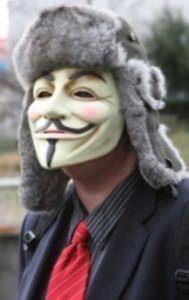You may have heard the newsthis morning about Trent Reznor quitting Twitter due to the behavior of internet trolls who made the experience both uncomfortable and upsetting. OK, he didn’t quite use those exact words – his rant was much more profane – but you get the drift. However, Reznor is not alone in wanting out of the social media scene. Popular author Stephenie Meyer also recently ditched her MySpace page for good, lamenting how she missed the early days when she could hang out with people online.

But “hanging out with people online” is supposed to be the promise and the potential of social media today, not something from days gone by…so what’s going wrong here? Have the trolls ruined social media for good?
Hating Celebs is Now a Social Activity
In our culture, celebrity-bashing has almost become a sport of sorts. Entire web sites have been set to profit from the game of picking on those far-more-fortunate than ourselves. From Perez Hilton’s gossip blog to smaller sites focused on celeb’s style (or lack thereof) to the paparazzi pic-filled giants like TMZ, our guilty pleasure of celeb-watching has turned into the much guiltier pleasure of celeb-hating.
That hate has extended out from the traditional gossipy sites to the very platforms and pages that the celebs themselves maintain. In Stephenie’s Meyer’s case, that was her MySpace page. At one time, Myer was credited as having made excellent use of social media, notes the Christian Science Monitor. She was responsive to fans and even credits some of her novels success to the friendly and positive community she built there.

But as her fame grew, so did the backlash. After several imitators posed as her online in an attempt to deceive fans, Meyer finally just called it quits. “It was a lot of fun while it lasted, and I really miss the early days when I could hang out with people online. Many of you are hilarious and insightful, and I wish it was easier for me to talk to everyone the way I used to,” she writes on her personal web site.
In Meyer’s case, it sounds like she made the mistake of thinking she could manage social media on her own, but at her level of fame, she could have really benefited from the help of a public relations team who specialized in social media. Let them handle the Facebook fan page and Twitter account, deal with the trolls, moderate the comments, etc. Unfortunately for her fans, she just quit.
But cases like those from Reznor and Meyer may just be the canary in the coal mine of social media. As tons of celebs flock to Twitter in an effort to regain control of their image and express themselves online, they may be in for a rude awakening when they have to deal with the vitriol and hate spewed towards them from those that resent their position…or from those who frankly just get their kicks from making others feel bad.
How Can We Fix This?
But what can be done to resolve this? Reznor thinks that Twitter needs more blocking mechanisms, but it’s possible the problem goes deeper than that. Blocking the bad guys is just a band-aid on this situation. What we really need is a way to force the trolls out into the light.

This could be easily accomplished by simply putting an end to online anonymity – a trend that hasn’t quite arrived yet. You see, if you’re allowed to leave a comment with no name, no email, and no other unique identifier, then you have a free pass to be as hateful and rude as you like. It’s a blank slates with no consequences. While there are some cases where anonymous comments make sense, when engaging in social media activities – be them blogs, social networks, Twitter, etc. – it’s just not productive to allow the anonymous trolls to disrupt what’s otherwise an often productive and insightful discussion.
As much as some may rail against the lock-in and closed nature of Facebook, the promise of Facebook Connect is that it could address this problem. Finally, people could identify themselves online and have to stand behind their words.
We’ve heard, too, that Twitter is flirting with the idea of verified accounts. Maybe they should consider extending that option beyond just the public figures and come up with a system that lets everyone verify their account by linking it to their other online profiles.
Online anonymity is just a leftover from the early days of the web – a time when there really just weren’t other options. You just created a handle, set up an account, and began to write. Now that we have the tools to identify each other, shouldn’t we begin to use them?
Think of all the problems it would solve – not only would it address troll behavior but it would also out the marketers and advertisers who were manipulating the user reviews and ratings on sites like Yelp and Amazon. It would let you know if that blog commenter who disagreed with an article or hated a product had a secret agenda (like maybe they worked for a competitor?). Maybe it would actually put an end to such behavior, allowing the forums of social media to finally be returned to those who just wanted to discuss, communicate, and connect.
What do you think? Leave your comments, anonymous (sigh) or otherwise below.
Update: Join a FriendFeed Discussion on the topic – here or here.
Image credits: Troll – flickr user tandemracer; anonymous guy – flickr user Brymo; Meyer – stepheniemeyer.com

















